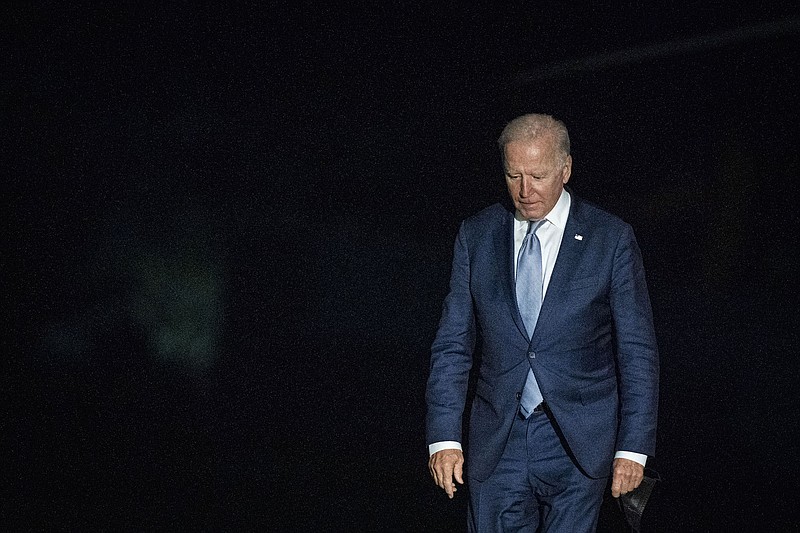I've been trying to imagine some kind of strategic vision behind the Biden administration's recent decision-making - the strange pivot from the stalled-out Build Back Better negotiations to election reform theatrics, in which a president with miserable approval ratings managed to advertise his own political weakness and alienate potential negotiating partners, all in the service of legislation remote from most Americans' immediate concerns and unlikely to address the genuine problems in the system.
Here is the best theory I can come up with: Biden won in 2020 as the moderate nominee of a partially radicalized party, which created an inherent uncertainty about what his victory would mean for policymaking - whether he would use his centrist cred to push an Elizabeth Warren-style agenda or govern primarily as a bipartisan triangulator, a moderate in full.
But after Donald Trump's stop-the-steal campaign, the Democratic Senate victories it enabled and the shock of Jan. 6, a lot of Democrats decided the transformative version was within their grasp. The Republican Party was damaged and internally at war, we had vaccines for the coronavirus that offered the prospect of a quick return to normalcy, and it seemed like the hoped-for "Biden boom" might create space for an ambitious progressive agenda.
His first Rooseveltian effort, the recovery bill, passed with surprising ease.
But then came harsh reality: the delta variant, the Afghanistan mess, the inflation spiral.
And yet the early progressive expectations for a transformative presidency nevertheless endured; they were palpable throughout the Build Back Better negotiations, and they remain evident in the rage against Joe Manchin and Kyrsten Sinema.
Thus the strategic argument for Biden's recent maneuvers might be that he felt the need to go all the way with the progressive wing of his party, embrace their bombast - all to prove to them that he had done what he could and the dream is dead for now, the Biden New Deal finished. Only after that knowledge can any sort of pivot to moderation or bipartisanship begin.
But this is still not a very good justification for Biden's choices lately - because going all the way with the more ideological faction in your party isn't costless, and it makes any pivot back to moderation that much harder to ultimately make.
We saw a version of this with the Build Back Better negotiations. The White House seemed so committed to taking the progressive side and pushing Manchin as hard as possible that it missed the obvious moment to make a deal - when the West Virginia Democrat literally wrote a $1.8 trillion offer - and instead managed to shove him into truculent opposition.
Now, with election reform, the same pattern is repeating. Its foreordained failure should have been the prelude to negotiations on much narrower terrain - a focused attempt to prevent election subversion via a rewrite of the Electoral Count Act that some Republican senators seem willing to consider.
But in making his push for the never-gonna-happen legislation, Biden went with rhetorical maximalism, accusing the legislators preventing its passage of siding with Bull Connor, George Wallace and Jefferson Davis.
Now, in politics, no enmity is permanent and no rhetoric unforgivable (just ask almost all of Trump's 2016 primary opponents), so I won't tell you Biden made future negotiations impossible this past week.
But generally, politicians find reasons to forgive or forget when power forces them to do it, and power is what Biden conspicuously lacks right now - which makes what we've just watched from him feel like the worst possible combination for a president: an anger that only reveals weakness, an escalation that exposes only impotence beneath.
The New York Times
